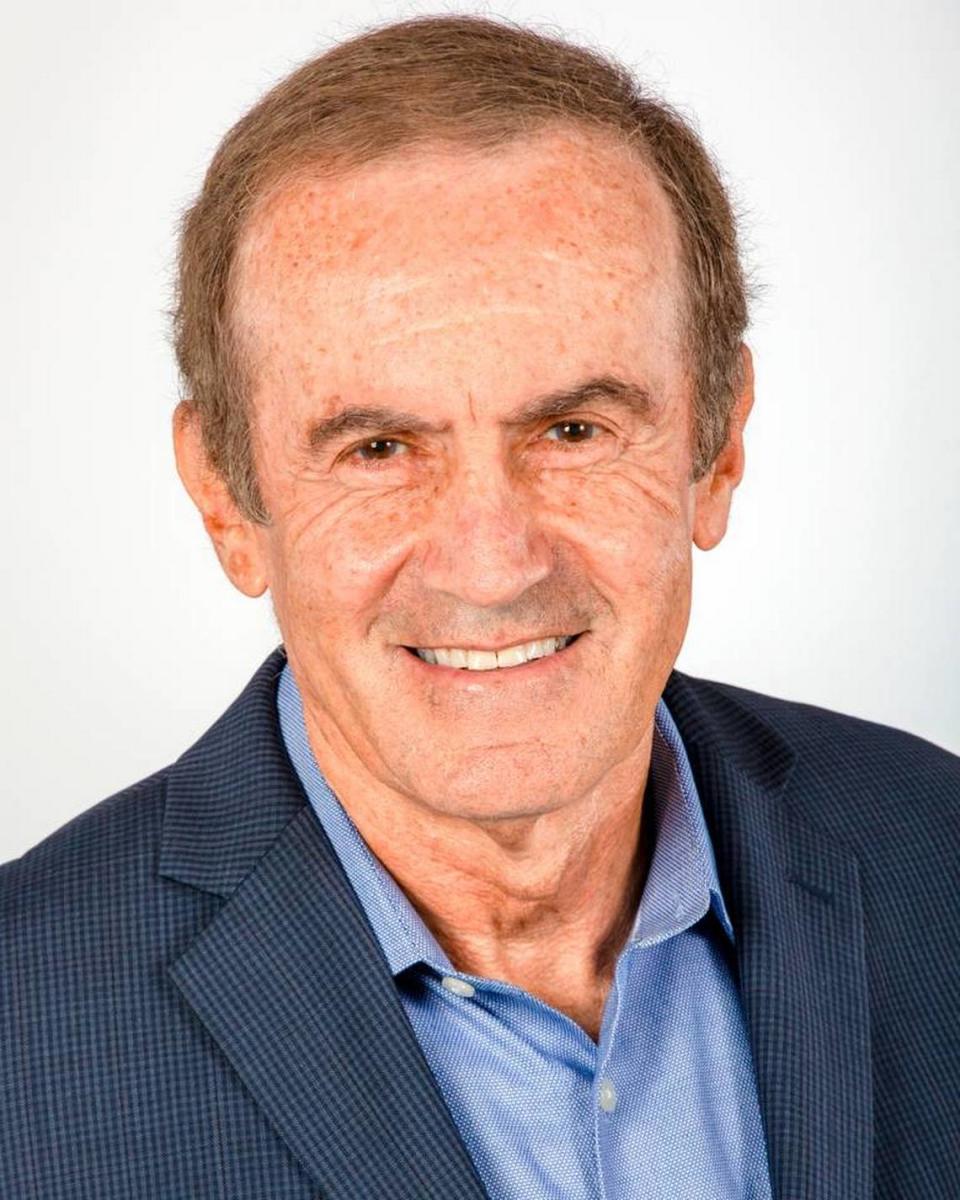Venezuela may not launch full-scale Guyana invasion, but could do something just as dangerous | Opinion
- Oops!Something went wrong.Please try again later.
Venezuelan dictator Nicolás Maduro is not likely to launch a full-scale military invasion of Guyana’s disputed Esequibo region, as he tacitly threatened in a speech this month. But he may launch a “silent invasion,” which could be just as dangerous.
According to this theory, Maduro may send a small team of soldiers to a remote region of the oil-rich Esequibo jungle, and plant a Venezuelan flag. Then, he would release a video of the scene and request that Russia and China ask the United Nations to call for a “cessation of hostilities” in the area. This, in effect, would establish a de facto Venezuelan presence there.
Such an action most likely would trigger an international conflict and give Maduro a “national emergency” excuse to cancel next year’s elections in Venezuela, many experts suspect.
In his televised address to the nation on Dec. 5, Maduro held a map titled “New map of the Bolivarian Republic of Venezuela” that includes the Esequibo area and announced plans to create a new Venezuelan state there. He called it the “Guayana Esequiba.”
Maduro also said he would grant Venezuela’s state oil firm PDVSA licenses to explore oil deposits in the area, which makes up about three-quarters of Guyana’s territory.
In a Dec. 8 article with the headline “The entirely manufactured and dangerous crisis over the Esequibo,” Ryan Berg, director of Washington’s Center for Strategic and International Studies’ Latin America program, speculated that Maduro may engage in “hybrid warfare” or start a silent invasion. “The entirely manufactured and dangerous crisis over the Esequibo.”
Berg argued that Maduro has several “opportunities for hybrid warfare or gray zone tactics,” because “the Esequibo area is enormous (a third larger than the areas of Ukraine currently occupied by Russia), sparsely inhabited and comprised of dense jungle.”
According to Berg, “Maduro might seek to send a small contingency of Venezuelan soldiers into Guyana, plant a flag, then claim that these forces are protecting the newly created state of Guayana Esequiba.”
Asked for more specifics, Berg told me that Maduro may not even need to send soldiers to the Esequibo jungle: The Venezuelan dictator could fake the event.
“Maduro could tape a video in Venezuelan territory, in an area similar to Guyana’s, with Venezuelan soldiers talking about defending their territory,” Berg told me. “Nobody would be able to tell whether it was taped in Venezuela or Guyana.”
Berg says Maduro may not launch a full-blown invasion because Venezuelan armed forces “are better understood as a drug-trafficking organization rather than a proper fighting force.” But he does not rule out an invasion, because, “Dictators do not always choose the ‘rational’ option.”
Most Venezuelans, including top opposition leaders, support their country’s long-contended claim to the Esequibo region. The area was awarded to Guyana in a Paris arbitration decision in 1899, but Venezuela formally repudiated the Paris award in 1962.
Juan Guaidó, the former Venezuelan interim president appointed by the now-dissolved opposition-controlled National Assembly, agrees that a full-scale Venezuelan invasion is unlikely.
“Maduro doesn’t have the capacity even to provide gasoline, water, energy, basic services. He wouldn’t be able to sustain a conventional war,” Guaidó told me. “But I don’t rule out that he would plant a flag, or do something like that, to divert as attention from Venezuela’s domestic problems and provoke an international conflict.”
Indeed, Maduro knows that he is in deep trouble. He is scheduled to run for re-election in 2024, and a recent ORC poll gave him a dismal 14% popularity rate. Meantime, the opposition held a highly successful primary in October, in which hard-liner Maria Corina Machado won with 93% of the vote. That injected new energy into the opposition movement.
Politically cornered, Maduro may create a national emergency to postpone the elections or eliminate the few remaining political freedoms n Venezuela. A military invasion of Guyana would be too risky and could mark the beginning of the end of his regime, as happened when Argentina’s military junta invaded the British-held Falkland/Malvinas islands in 1982.
I wouldn’t be surprised if he opts for planting a Venezuelan flag in the jungle, and turns that episode — real or fake — into a larger international conflict.
Don’t miss the “Oppenheimer Presenta” TV show on Sundays at 9 pm E.T. on CNN en Español. Blog: www.andresoppenheimer.com


